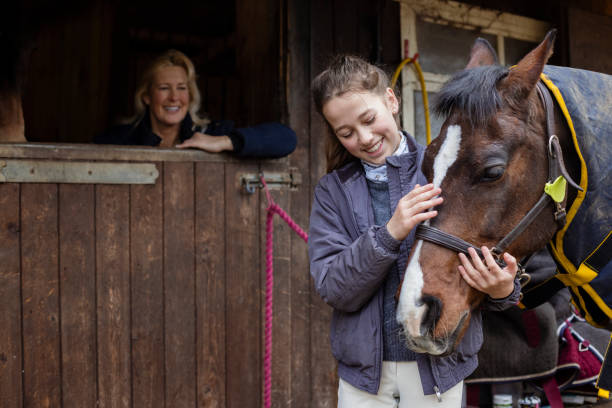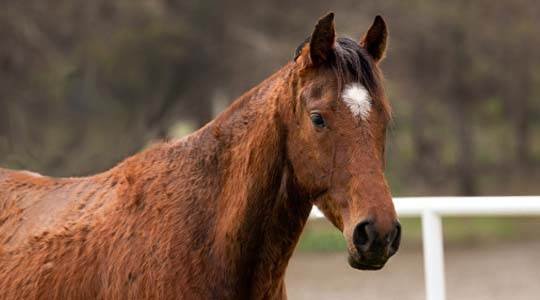As horses age, they often encounter a range of challenges, and one common issue is senior horse appetite problems. A decline in appetite can lead to various health concerns, impacting not only the horses weight but also its overall wellbeing. It’s crucial for horse owners and caretakers to understand the underlying causes and remedies to maintain the health and vitality of their senior equine companions.

Understanding Appetite Loss in Senior Horses
Senior horse appetite problems can arise from multiple factors. Identifying the root cause is the first step in addressing the issue. Age-related changes in the digestive system, dental problems, and metabolic disorders are some common culprits. Additionally, changes in environment or routine can also affect a horse’s appetite.
Age-Related Changes
As horses age, their digestive efficiency decreases. This means they may not absorb nutrients as effectively, leading to a loss of appetite. It’s essential to adjust their diet to accommodate these changes, often by providing easily digestible and nutrient-rich feeds.
Dental Health Issues
Dental problems are a significant cause of senior horse appetite problems. Regular dental check-ups are vital, as older horses are prone to issues such as tooth loss, sharp edges, and uneven wear, which can make eating painful and difficult.
Metabolic Disorders
Conditions like Cushing’s disease and equine metabolic syndrome can affect a horses appetite. These disorders often require veterinary intervention and dietary management to stabilize the horses health.
Solutions to Improve Appetite
Once the underlying cause of senior horse appetite problems is identified, implementing the right solutions is key. Here are some strategies to help improve appetite in senior horses:
Dietary Adjustments
Offering a palatable, high-quality diet that meets the caloric and nutritional needs of a senior horse is crucial. Consider feeds specifically designed for older horses, which are often softer and easier to chew.
Regular Exercise
Engaging senior horses in regular, moderate exercise can stimulate appetite. For guidance, check out this article on exercise for older horses.
Routine Health Checks
Frequent veterinary check-ups can help detect health issues early, preventing them from affecting the horses appetite. This includes regular dental examinations to ensure no dental issues are present.
Environmental and Emotional Considerations
Not all senior horse appetite problems are purely physical. Environmental and emotional factors also play a significant role. Horses are sensitive creatures, and changes in their surroundings can affect their eating habits.
Stable Environment
Maintaining a stable and stress-free environment is beneficial. Consistent routine, familiar companions, and a comfortable living space contribute to a horse’s sense of security and can positively influence appetite.
Pasture Management
Access to quality pasture can encourage natural foraging behavior, which is excellent for stimulating appetite. Learn more about pasture management for old horses.
Additional Care for Senior Horses
When dealing with senior horse appetite problems, its essential to take a holistic approach. Consider all aspects of care, from hydration to bedding, to ensure your horse is comfortable and healthy.
Hydration
Dehydration can exacerbate appetite issues. Ensure your horse has constant access to fresh water. For tips on keeping your horse hydrated, visit senior horse hydration.
Bedding and Comfort
Providing suitable bedding can enhance a horse’s comfort, encouraging relaxation and improved appetite. Discover the best bedding options for senior horses.
Stretching and Mobility
Encourage mobility and flexibility through gentle stretching routines. This can improve overall health and wellness, potentially increasing appetite. Explore stretching routines for senior horses.
Conclusion
Tackling senior horse appetite problems requires a comprehensive understanding of the horses needs and careful attention to its environment and health. By making informed dietary choices, ensuring regular veterinary care, and maintaining a supportive living environment, horse owners can significantly improve the quality of life for their senior companions.

FAQs
What are common causes of appetite loss in senior horses?
Common causes include dental issues, metabolic disorders, and changes in the digestive system. Environmental factors and emotional stress can also contribute.
How can I encourage my senior horse to eat more?
Offer a palatable, nutrient-rich diet, ensure regular dental and health check-ups, and maintain a stable, stress-free environment.
When should I consult a veterinarian?
If appetite loss is sudden or accompanied by other symptoms like weight loss or lethargy, consult a veterinarian immediately to rule out serious health issues.
For further reading on caring for older horses, you can visit this informative guide by the British Horse Society on care of elderly horses.
This article contains affiliate links. We may earn a commission at no extra cost to you.
